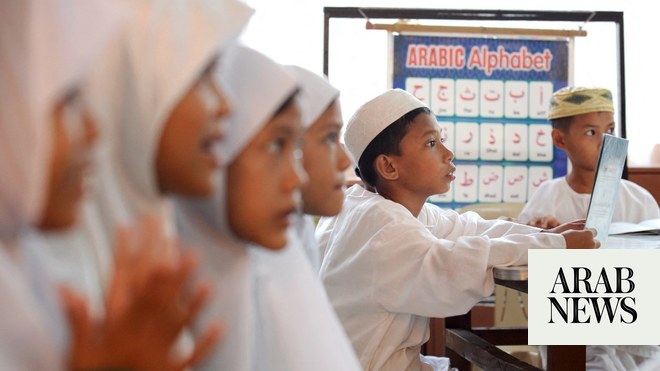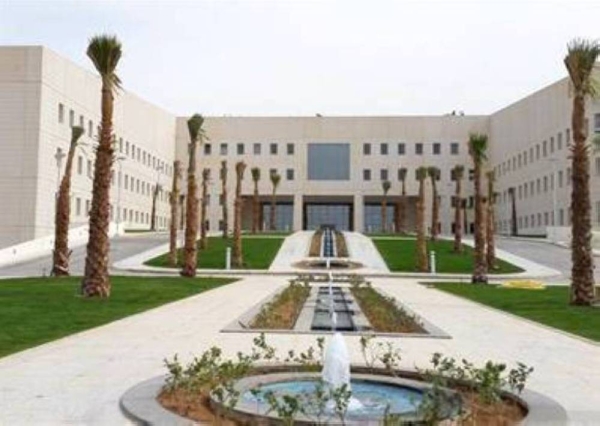
Legislation aims to expand access for Muslims to education in accordance with their beliefs
Muslims constitute 5 percent of the nearly 110 million population of the Philippines
MANILA: A new bill filed in the Philippine Congress seeks to introduce the teaching of Arabic into the school curriculum to increase awareness of Muslim culture and traditions in the Southeast Asian country where a sizeable minority professes Islam.
Muslims constitute roughly 5 percent of the nearly 110 million, predominantly Catholic population of the Philippines. Muslim communities live mostly on the island of Mindanao and the Sulu archipelago in the country’s south, as well as in the central-western province of Palawan.
The bill was filed in Congress on Feb. 9 by lawmaker Mujiv Hataman from Basilan in the Bangsamoro Autonomous Region — an autonomous, largely Muslim area of the southwestern portion of the island of Mindanao.
The proposed legislation No. HB 7130, aims to expand access for Muslims to “education according to their cultural, traditional, social, and religious beliefs.”
FASTFACT
Legislation aims to expand access for Muslims to education in accordance with their beliefs.
The Philippine government currently has a program, titled Arabic Language and Islamic Values Education, to teach the Arabic language and fundamentals of Islam at regular schools, but it has not been fully implemented.
“The ALIVE program provides a curriculum for public and private elementary schools that caters to Muslim students. HB 7130 seeks to institutionalize this curriculum because, presently, it suffers from many challenges that include, but are not limited to, non-implementation, lack of funding, lack of training of qualified teachers, and more,” Hataman told Arab News on Friday.
“If passed into law, it will allow them to learn about the subjects at the primary education (level), no matter what school they are in. It also aims to enrich the Philippine education system with cultural and religious knowledge of the Islamic faith and foster national unity in diversity among Muslim and non-Muslim students.”
According to Hataman’s bill, the implementation of the program — which shall be optional and at the behest of students’ parents — would develop the learners’ functional literacy in Arabic, while teaching Islamic values would help them understand the religion’s values and foster interfaith dialogue, multiculturalism and respect for differences in belief.
It is not the first time that such legislation is proposed in the Philippines.
In 2022, Sen. Win Gatchalian filed a similar bill in the Senate to “ensure the contribution of Muslim Filipinos to national goals and aspirations aimed at making them partners in nation-building.”
According to Gatchalian, the chairman of the Senate Committee on Basic Education, the measure would help foster inclusive education to address learners’ diversity of needs and ensure their full participation.
While Gatchalian’s bill is currently pending in the Senate, Hataman’s is now with Congress, awaiting its first hearing.
It may take months until congressmen, and later senators, deliberate it, but the lawmaker is dedicated to pursuing the cause to ensure that Muslim students are able to fully realize their potential.
“It is imperative that we mandate the teaching of Arabic language and Islamic values to Muslim students,” he said.
“We need to recognize that our diverse cultural and religious backgrounds require a more responsive educational approach.”











